Massimo Pigliucci's Blog, page 23
November 29, 2023
Recommended Books

The Good Life: Lessons from the World's Longest Scientific Study of Happiness, by Robert Waldinger and Marc Schulz.
Summary:
What makes a life fulfilling and meaningful? The simple but surprising answer is: relationships. The stronger our relationships, the more likely we are to live happy, satisfying, and healthier lives. In fact, the Harvard Study of Adult Development reveals that the strength of our connections with others can predict the health of both our bodies and our brains as we go throug...
November 27, 2023
From ancient to new Stoicism: VI—Steven Gambardella’s new modern Stoicism
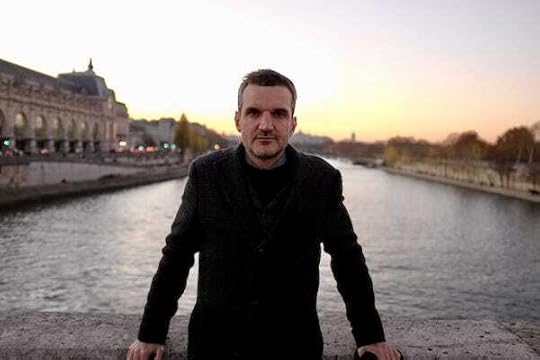 Steven Gambardella, image from https://medium.com/@stevengambardella/about.
Steven Gambardella, image from https://medium.com/@stevengambardella/about.Stoicism famously got started around 301 BCE, when Zeno of Citium, a former Phoenician merchant, began to teach at the Stoa Poikile, or Painted Porch, in Athens. We have examined the basics of ancient Stoicism in three essays in this series, dedicated respectively to Stoic physics (i.e., science and metaphysics), logic, and ethics.
A good amount of time has passed since Zeno, and both science and philosophy have made progr...
November 24, 2023
Love, kindness, … and Stoicism?
 Love (upper left), kindness (upper right), and Stoicism (bottom).
Love (upper left), kindness (upper right), and Stoicism (bottom).Darin wrote: I’m a subscriber at Figs in Winter, and am looking forward to the discussions about New Stoicism. When I mention Stoicism to people as a life philosophy and a way to deal with difficult, or indeed any points in life, I eventually get questions like ‘what about love, or kindness as central tenets, and helpful solutions to life’s ills?’ They feel like Stoicism is sterile and not addressing some central need. I feel like ...
November 22, 2023
Suggested Readings
 Woman with wax tablets and stylus (so-called "Sappho"), Naples Archeological Museum
Woman with wax tablets and stylus (so-called "Sappho"), Naples Archeological MuseumThe quest for scientific certainty is futile. I don’t floss. This makes me, as my dentists always seem to imply, a naughty boy, a disgusting human willing to walk around with bits of food stuck between my teeth. Of all the dreaded parts of any dentist visit, the worst is receiving a condescending lecture on the merits of flossing. Then I found a secret weapon: a 2019 research review by Cochrane, an independent net...
November 20, 2023
From ancient to new Stoicism: V—Piotr Stankiewicz’s Reformed Stoicism
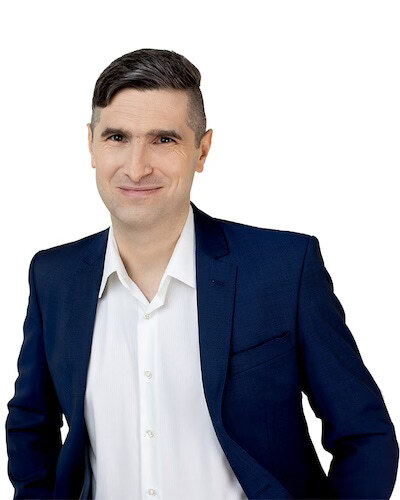 Piotr Stankiewicz, image from piotrstankiewicz.pl.
Piotr Stankiewicz, image from piotrstankiewicz.pl.This series of essays is meant to provide, as the subtitle says, a conceptual map of where Stoic philosophy came from and where it may be going. So far, we have looked in depth at the three fields of inquiry defining ancient Stoicism: science-metaphysics [1], logic, and ethics. We have then examined what I think remains so far the most comprehensive, if somewhat challenging to follow, attempt at modernizing Stoicism: the one articulated by Larry ...
November 17, 2023
Profiles in skepticism: Sextus Empiricus
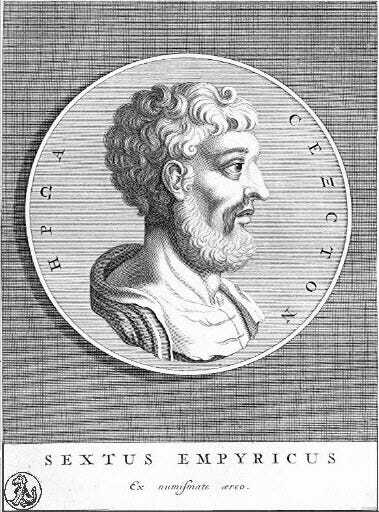 The mysterious Sextus Empiricus, image from Wikimedia.
The mysterious Sextus Empiricus, image from Wikimedia.Ancient skepticism was the root of a long tradition of critical thinking that eventually led to the maturing thought of Medieval, Renaissance, and finally modern and contemporary authors, ranging from John of Salisbury (1110-1180) to Michel de Montaigne (1533-1592), from René Descartes (1596-1650) to Baruch Spinoza (1632-1677), from David Hume (1711-1776) to Friedrich Nietzsche (1844-1900), and so on.
In this six-part series, of which the pres...
November 15, 2023
Suggested Readings
 Woman with wax tablets and stylus (so-called "Sappho"), Naples Archeological Museum
Woman with wax tablets and stylus (so-called "Sappho"), Naples Archeological MuseumWhat does it mean to ‘interpret’ Quantum Mechanics? When I wear my hat as a philosopher of science (partially distinct from my other hat as an evolutionary biologist), I eventually run into a scientist (I could name names, but I won’t) who smugly tells me that philosophy obviously doesn’t make progress. The evidence? Philosophers disagree on all sorts of things and there is no emerging consensus—unlike in science,...
November 13, 2023
From ancient to new Stoicism: IV—Becker’s update
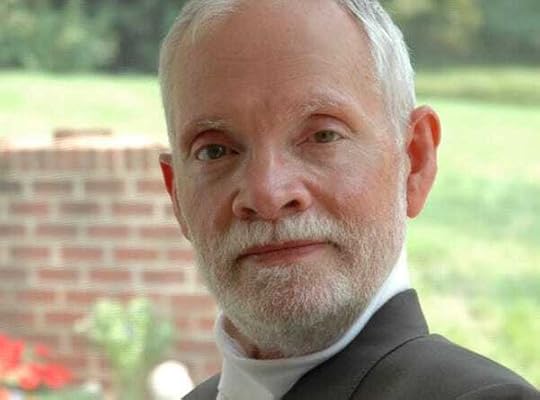 Larry Becker
Larry BeckerHow do we update ancient Stoicism so that it becomes a viable philosophy for the 21st century and beyond? We start, as we did in this ongoing series, with a solid understanding of ancient Stoicism: if we don’t know the starting point we can hardly chart the way forward. Now that we have a grasp of ancient Stoic physics (i.e., science), logic, and ethics, we can begin to tackle four explicit attempts, made by different authors, to come up with a modern rendition of Stoic philosophy.
We...
November 10, 2023
Stoicism and beauty
 A beautiful sculpture, Michelangelo’s Pietà (left); a beautiful moral act, helping people in need (right).
A beautiful sculpture, Michelangelo’s Pietà (left); a beautiful moral act, helping people in need (right).Stoicon is the annual international conference gathering people interested in Stoicism. “Gathering” is no longer exact, perhaps, since after Covid-19 we don’t meet in person anymore, but rather through the confine of a Zoom screen. No matter, this year’s theme was the relationship between Stoicism and beauty.
Friends and colleagues gave talks on “The Stoic theory of beauty” (Aistė Čelkytė), “...
November 8, 2023
Video chat: Peter Adamson on Ancient and Hellenistic philosophy
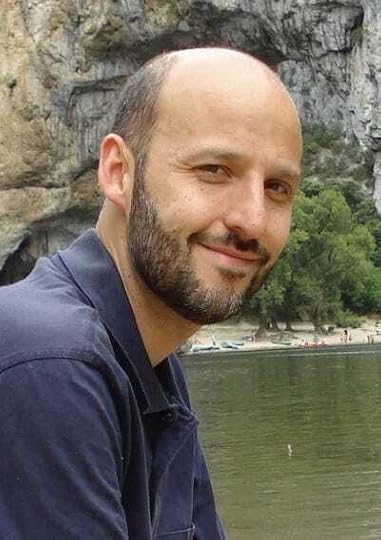 Peter Adamson
Peter AdamsonHere comes the third of an occasional series of video chats with authors and translators who have written about the philosophy, culture, and history of the Greco-Roman tradition.
This time I talk to Peter Adamson, a philosopher and intellectual historian who holds two academic positions: professor of philosophy in late antiquity and in the Islamic world at the Ludwig Maximilian University of Munich; and professor of ancient and medieval philosophy at King's College London.
Peter hosts...



